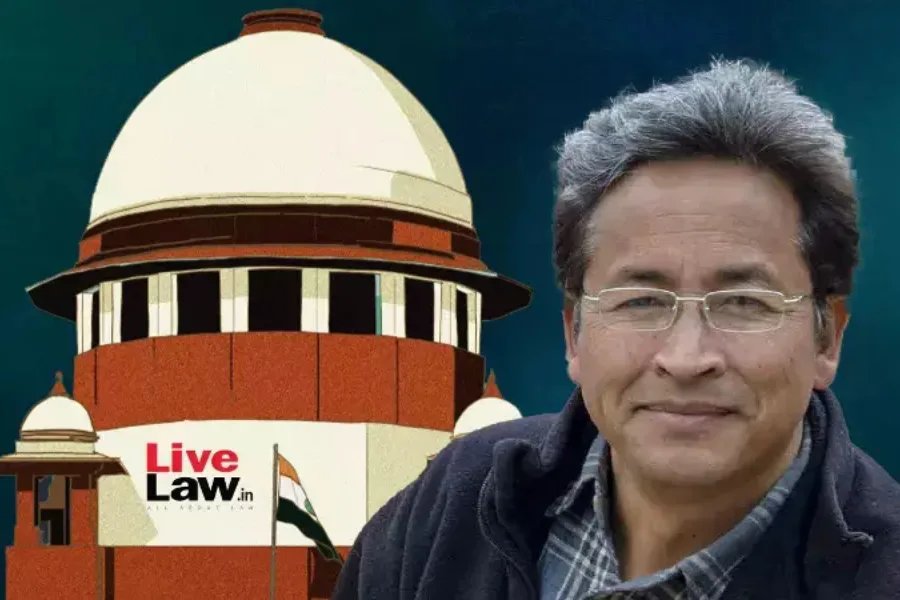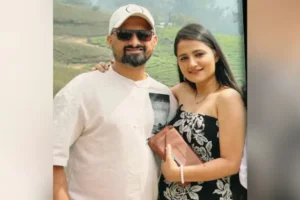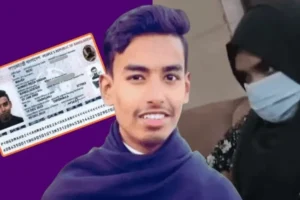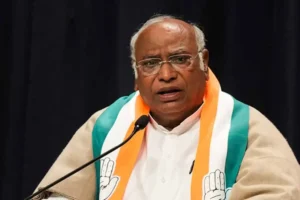
Sonam Wangchuk Detention Case: On October 6, the Supreme Court of India issued a notice to the Central Government. This was in response to a writ petition filed by social activist Sonam Wangchuk’s wife, Gitanjali Angmo. She challenged his detention under the National Security Act (NSA), 1980. The bench, composed of Justice Aravind Kumar and Justice NV Anjaria, scheduled the next hearing for October 14.
This significant occurrence has attracted national attention. This prompted discussions on the legitimacy of preventive detention and transparency within constitutional context. The interesting issues relating to this case are discussed in this article as part of the latest updates of the Supreme Court.
Context of the Story
The petition is a habeas corpus petition under article 32 of the Constitution. It is seeking the release of Wangchuk, who was allegedly confined in Jodhpur Central Jail. The petition challenges the legality of his detention. It claims that Wangchuk has not been informed, and neither has his wife been informed about any basis for arrest. This would violate Article 22’s requirement of informing an individual of the reasons for his or her arrest.
The Union Government, Ladakh Administration and Superintendent of Jodhpur Central Jail have been named respondents in the case.
Arguments from the Petitioner’s Standpoint
Senior Advocate Kapil Sibal, acting for Gitanjali Angmo, argued that she must be provided with grounds for the detention. He argued that without them, she cannot appropriately contest the order. He stated that not providing such grounds in ways obstructs the right for a fair contest and violates procedural guarantees provided by the Constitution.
Sibal further sought interim relief to ensure medical care for Wangchuk, citing health concerns.
The Government’s Response
Tushar Mehta, the Solicitor General of India representing the Centre. He responded to the submission made before the court, arguing Wangchuk has been provided with the grounds of detention.
Also, he further argued that there is no obligation to provide it to his wife. He stated that to do so, would open up a whole new legal concept outside of the current scheme beget by law.
Relating to offspring care, Mehta informed the Court that Wangchuk himself informed the medical professionals, during the medical examination, that he did not take any form of medication prior to being detained. They also assured that any medical assistance would be provided – if needed.
The Inquiry by the Court
Abstaining from making any interim order at this time, Justice Aravind Kumar delivered a question to the Government. He inquired what obstacle prohibits the petitioner from being provided with the grounds of detention. The bench suggested that the Solicitor General may explore the option of sharing the space with Angmo.
As far as the court knew, no properly made application for a meeting had been filed. When Sibal sought permission for the petitioner to meet with her husband, the court pointed out that. Justice Kumar indicated that the petitioner must first make an application. He is to request judicial intervention if the application is unsuccessful.
The court also wanted to know why the petitioner had not approached the High Court for assistance initially. In response to this inquiry, Sibal mentioned that the High Court’s jurisdiction was complicated since the Central Government made the detention order. Justice Kumar requested that he and Sibal talk this over further at the next scheduled date for hearing.
Political and Legal Ramifications
The events leading to Wangchuk’s detention havecreated considerable discussion and interest among political and social groups in Ladakh considering Wangchuk’s status as an education reformer and environmentalist. Wangchuk’s detention under the NSA for his alleged role in violent events in Ladakh only increases scrutiny of preventative detention laws in politically sensitive areas in the country.
The legal community and civil liberties advocates alike are already closely monitoring the circumstances, as the Supreme Court may set the stage for the future understanding of the rights of detainees and the transparency obligations associated with the NSA.
So, with the Supreme Court’s notice to the Centre being a decisive milestone in this legal struggle, it is now time for the next hearing on October 14th. The decision made could mark important precedent in the ongoing discussion of civil liberties, national security and principles of natural justice in preventive detention issues in what is among the most followed recent news updates coverage in India.






k59smk
jq2wwe
xkk27k
p5ejed
**mindvault**
mindvault is a premium cognitive support formula created for adults 45+. It’s thoughtfully designed to help maintain clear thinking
**mindvault**
mindvault is a premium cognitive support formula created for adults 45+. It’s thoughtfully designed to help maintain clear thinking
I don’t think the title of your article matches the content lol. Just kidding, mainly because I had some doubts after reading the article.
Swerte777! Lucky sevens, baby! Gotta love that! Hope they live up to the name. Wish me luck, gonna give it a shot! Check it out: swerte777
About to log into jlbossslotlogin – wish me luck! Maybe I’ll get that jackpot, fingers crossed! Take a spin at this link: jlbossslotlogin
Great line up. We will be linking to this great article on our site. Keep up the good writing.